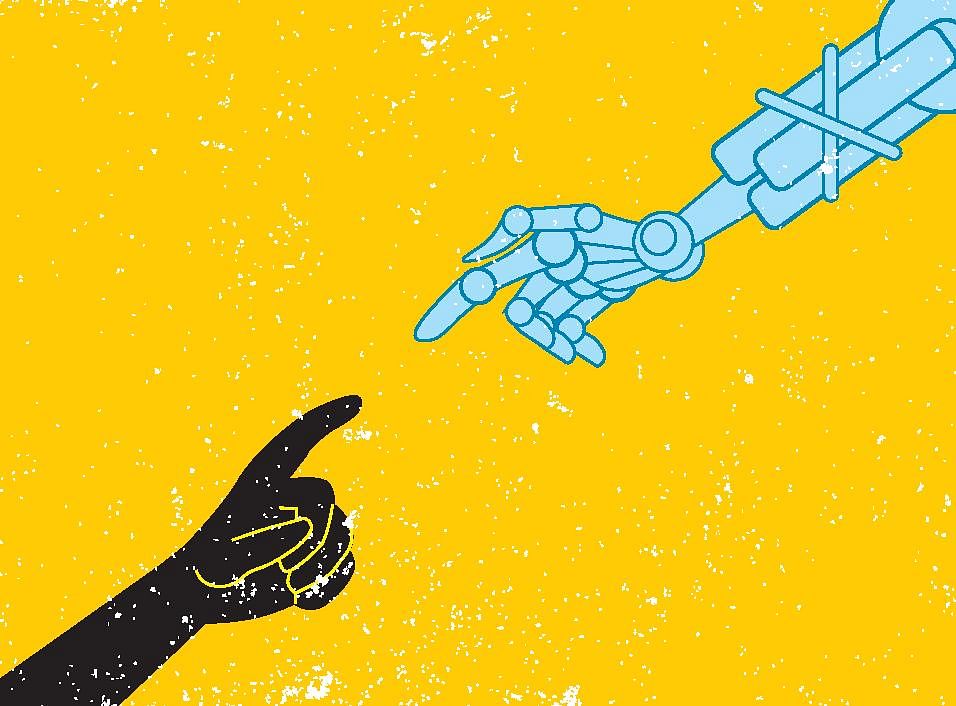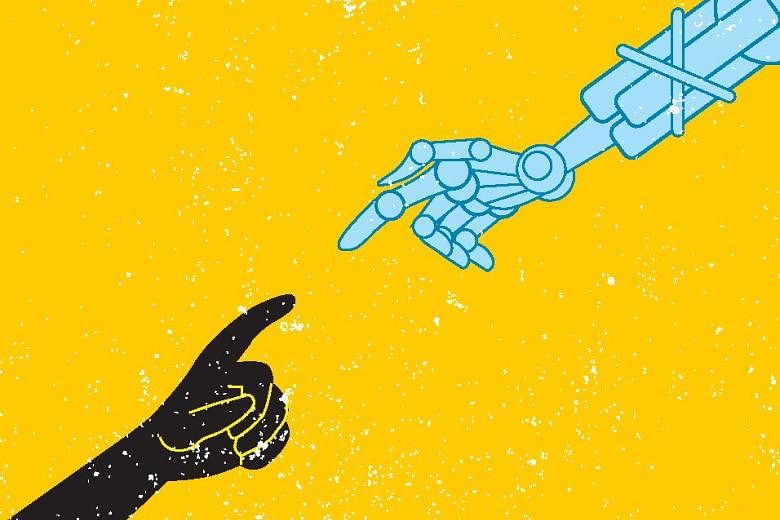When world leaders gather for their annual conference in the Alpine resort of Davos in Switzerland in January, the elephant in the room will be none other than Mr Donald Trump.
Mr Trump is unlikely to be there in person; the United States President-elect will be in Washington DC, busy being sworn in on Jan 20. That is the very week that government and corporate chiefs will be holding their meetings in Davos, which are seen by some as the ultimate celebration for the idea of,and belief in, economic and political globalisation.
A rather frosty reception might have awaited Mr Trump had he chosen to brave the journey to the picturesque ski town, several hours by road from Zurich. Few, after all, have done more than he has to dispute, disparage and even try to debunk the Davos creed, with his rejection of free trade, immigration, racial integration, Western-led alliances and political liberalism.
The Economist magazine, favoured by the Davos set, summed it up well in an editorial after the shock US election results: "The fact of Mr Trump's victory and the way it came about are hammer blows both to the norms that underpin politics in the United States and also America's role as the world's preeminent power… he has taken aim at the belief, embraced by every post-war president, that America gains from the often thankless task of being the global hegemon. If Mr Trump now disengages from the world, who knows what will storm through the breach?
"The sense that old certainties are crumbling has rocked America's allies. The fear that globalisation has fallen flat has whipsawed markets. Although post-Brexit Britons know what that feels like, the referendum in Britain will be eclipsed by the consequences of this election. Mr Trump has demolished a consensus. The question is now what takes its place."
Perhaps most troubling for the Davos set will be the fact that so few from this elite circle saw what has been called a "whitelash by the Trumpentariat" coming.

Indeed, most of those who attended the annual conference convened by the World Economic Forum (WEF) in 2016 had given scarcely any credence to either the notion that Britain might pull out of the European Union, or that a 70-year-old businessman with no political experience might storm his way into the White House on a wave of populist rage. It just wouldn't happen, said many.
Rather, much of the discussion was focused instead on the impact of rapid advances in fields such as 3D printing, artificial intelligence, nanotechnology, robotics and the Internet of Things.
These were giving rise to the Fourth Industrial Revolution, as spelt out by Professor Klaus Schwab, the WEF's founder and executive chairman, in his latest book.
"The First Industrial Revolution used water and steam power to mechanise production.
"The Second used electric power to create mass production.
"The Third used electronics and information technology to automate production.
"Now a Fourth Industrial Revolution is building on the Third, the digital revolution that has been occurring since the middle of the last century.
"It is characterised by a fusion of technologies that is blurring the lines between the physical, digital and biological spheres.
"The speed of current breakthroughs has no historical precedent. When compared with previous industrial revolutions, the Fourth is developing at an exponential rate rather than a linear pace.
"Moreover, it is disrupting almost every industry in every country. And the breadth and depth of these changes herald the transformation of entire systems of production, management and governance," wrote Prof Schwab.
World of new possibilities
Evidence of these new technologies coming rapidly on stream was seen throughout the massive WEF conference hall, from a South Korean robot called Hubo showing off its dexterity in navigating obstacles in its path, to virtual-reality documentaries and an exhibition called This Time Tomorrow which showcased futuristic products, such as clothes with solar panels to charge your mobile phone.
It seemed like a world of rich new possibilities.
Indeed, one speaker at the forum, Oxford professor of globalisation and development Ian Goldin, likened the present time to the Renaissance, with its flourishing of science, innovation, the arts and ideas by the likes of Michelangelo and Leonardo da Vinci.
Such periods of intellectual ferment, added Professor Patrick McCray, professor of history at the University of California, often result in upheavals in society, with new social systems and operating standards emerging, from education to religion and social welfare.
Indeed, the sheer scale and pace of change are proving bewildering to many, as United States Vice-President Joe Biden pointed out. He reminded those gathered at the forum that there are very real middle-class fears of jobs being lost, livelihoods being disrupted and communities being shattered.
A WEF report released just days before the forum warned that as many as seven million jobs in developed countries could be lost over the next five years, with only two million new ones created over the same period.
The "Uberisation" of the economy might threaten cabbies' livelihoods, as private drivers offer cheap and convenient rides to passengers.
But even those private drivers might be made redundant when an Uber of the not-too-distant future starts offering rides in driverless vehicles.
Then what?
Going by the discussion in Davos, you might point to two distinct camps on what one might make of the prospect of a world without work.
The "techno-optimists" cite the rather glib mantra of science fiction writer Arthur C. Clarke, that the "goal of the future is full unemployment, so we can play".
New and more meaningful forms of human activity and social support networks will spring up in this brave new world, just as it happened in the previous industrial revolutions.
Just imagine, this group says, robots that can not only take away the drudgery of office work, but also look after Ebola patients or handle nuclear waste.
The opposing camp's rejoinder is from French philosopher Voltaire, who argued that "work banishes three great evils - boredom, vice and need". Already, signs of all three are evident in some societies, they note. Unemployment levels are high in many developed countries, including among young people.
Yet, paradoxically, employers speaking on a panel on the Future of Jobs were united in lamenting how difficult it was to find, and hold on to, the skilled workers they needed.
Employers pointed to a double mismatch - skilled workers were not where the jobs were; they were reluctant or unable to move, with national borders, cultural differences or xenophobic attitudes acting as barriers.
Secondly, workers who were available did not have the skills that employers sought.
Just about everyone who spoke at the session agreed that the main reason for this was outmoded education systems in most countries.
A period of promise and peril
Taking up these issues, Singapore's Deputy Prime Minister Tharman Shanmugaratnam pointed to two major challenges arising from the Fourth Industrial Revolution.
"First, that it could destroy jobs, and does not create enough new jobs… That is a valid fear, as it could happen that way," he noted.
But what had to be feared even more, he argued, was the status quo. This was one of high unemployment in many countries, coupled with jobs going unfilled because of a mismatch between skills and jobs. Wages had also stagnated for the middle classes, such that the current situation holds little promise for many ordinary folk.
"We should fear the failure of the Fourth Industrial Revolution, that it fails to uplift productivity, because you can only raise wages on a sustained basis if you go for higher levels of productivity," he argued.
"The challenge is to prepare people for this new world, where you already have many jobs unfilled, to prepare them for these jobs, and the jobs that are coming as well."
Doing so would require a reorientation in the way people are prepared for work and for fulfilling their potential, said the DPM.
First, a new balance has to be struck between the practical and theoretical in education programmes.
A shift is also needed away from the front-loading of education during the first two decades of a person's life towards a system of lifelong learning. Public funds, and private savings, which tend to be focused on education in these early years, should be spread out over a longer period of a worker's lifetime,enabling him to continually retool for new jobs as technologies change.
To be more effective, education institutions should do better at measuring outcomes, ensuring that they are preparing their young charges for the jobs that are coming on stream.
Getting employers and unions more involved in shaping curricula and programmes would also ensure that education programmes are agile and stay relevant amid rapid changes in technology.
These steps are precisely what the Singapore Government has embarked on with its new SkillsFuture programme, he added.
Rejecting the talk of a robotised future world plagued with massive unemployment, he said: "Technology will not determine the future. It is we who will make the future. The question is how we adapt."
Sharing this view, Prof Schwab summed up the current situation as a moment of "great promise, but also great peril".
Given the dramatic events of the past months, Prof Schwab's remarks seem prescient, as were those who alluded to great social upheaval, intellectual ferment and change that would be brought on by the economic and social forces underpinning the Fourth Industrial Revolution.
Yet, clearly, the anguished cries of those who are at the receiving end of the wrenching changes it has given rise to - rising income inequality, unemployment and social dislocation - have not been sufficiently heard, or addressed, to ensure that the benefits of globalisation are spread more widely.
So, when they meet again in Davos in January, the key architects - and primary beneficiaries - of globalisation will have much collective soul-searching to do. They will have to ponder the rage and resentment that have surfaced from those who feel left out, ignored and condescended to.
The Davos elite will have to find answers, and frame solutions, to convince Mr Trump and his supporters from Detroit to Daytona that their future lies with the open, inclusive, forward-looking international order that has enabled the world to make so much progress in recent decades.


